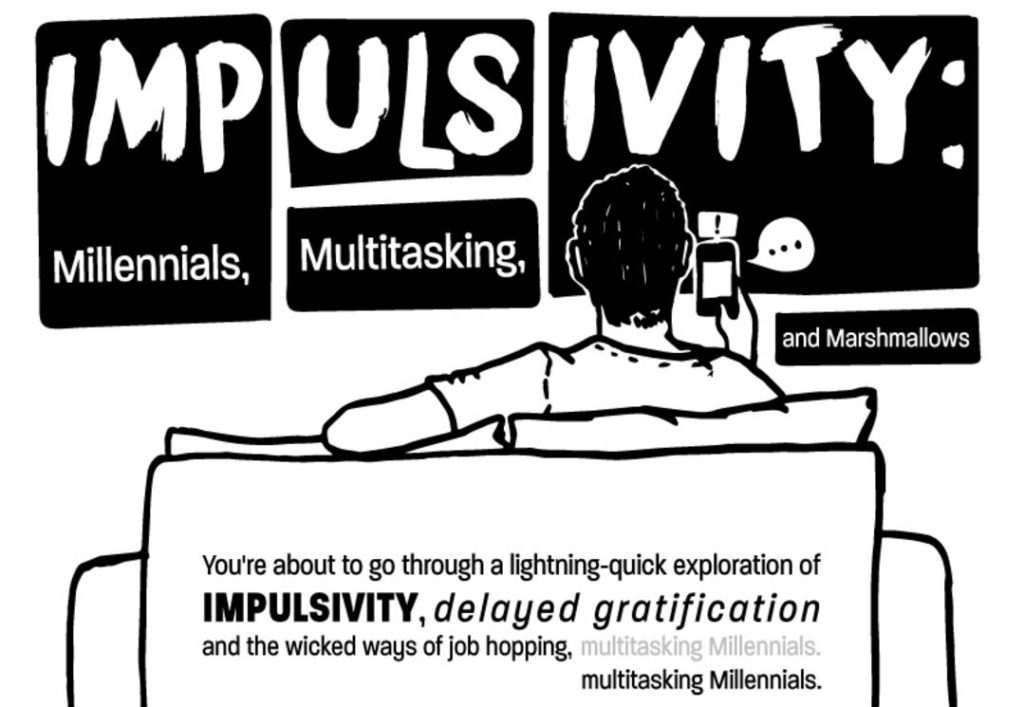Many business leaders still think of multitasking as a great thing, clinging to visions of employees who get more done than ever before. And, they think, there’s no generation better equipped to juggle multiple tasks than people in the 18 to 34-year-old age group, commonly known as Millennials. And it’s true, Millennials are known for being adept with all forms of technology and moving from one job to another, shifting between priorities with relative ease. Unfortunately, the latest research conducted in the fields of psychology and business productivity suggests we’ve got it all wrong
Multitasking doesn’t always live up to the dream. Instead, it tends to mean a lack of focus and an increase in impulsivity. There’s a financial cost, too. Lack of productivity due to multitasking equates to global losses of $450 million per year and Millennial job-hopping costs the U.S. economy more than $30 million per year. Multitasking needs to be reduced wherever possible to ensure productivity is high and therefore, there is adequate financial gain. For instance, employees having to retrieve information from files whilst trying to find that file in paper form can be a multitasking struggle. Getting help from companies like FilecenterDMS ensures that paper files are converted into computer data, which makes it easier for employees to find information and not have to multitask with paper. Productivity, obviously, increases. Similarly, businesses should consider making their processes more straightforward if they want more efficiency from their employees. Perhaps some businesses should look into accounts receivable performance management. That sort of web-based application could help businesses to improve their workflow, from enhanced screen navigation to workflow automation. That sort of thing could make it easier for employees to manage their work and get more done without having to multitask.
Studies have shown impulsivity isn’t a good thing. Researchers at Stanford University conducted a famous experiment 50 years ago where children were given the chance to eat a single marshmallow immediately, or wait until someone returned later, at which point they would receive a second marshmallow. The kids were tracked later in life, as adults, and it turns out those who waited for that second marshmallow fared much better than those who chose instant gratification. The participants who didn’t wait were more likely to have behavioral problems, be obese, use drugs and spend time in jail.
Today’s tech-centric world means a lot of impulsive, quick shifts in direction. Amazingly, research shows Millennials switch their attention between media platforms 27 times per hour. If you think they’re just getting a lot done, think again. Multitasking during cognitive tasks has been shown to lower IQs by 15 points and multitasking on a regular basis can reflect lower emotional intelligence and less brain density in the areas controlling cognitive and emotional control.
Impulsivity affects the workplace in other ways, too. Nearly nine out of 10 Millennials plan to stay in a job less than three years and 21 percent say they’ve changed jobs in the past year. While the average job tenure for all workers 25 and older is 5.5 years, it’s only three years for Millennials. The cost of job-hopping to employers isn’t marginal, either. The loss of one Millennial employee runs between $15,000 – $25,000, for most companies.
So, what can be done? When it comes to multitasking, employees can set up their schedules so they focus blocks of time on specific tasks. A minute taking course hence, becomes the need of the hour as it allows millennial employees to save time and work rather efficiently. Also, allowing short breaks to be more impulsive and employing apps to limit certain technologies can really help keep people on track, or the use of new technologies from the likes of business solution companies like vantiq could also increase productivity while also having a lot more applications too. Employers might consider offering yoga and meditation classes to help employees improve concentration. Shortening the workweek can also encourage people to make better use of their time.
In terms of the turnover issue, employers can discourage Millennials from leaving too soon by offering finite terms of employment from the get-go. Giving Millennials a sense of purpose through meaningful work and projects that require a variety of skills has been shown to deter job-hopping.

